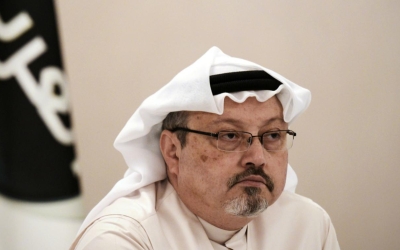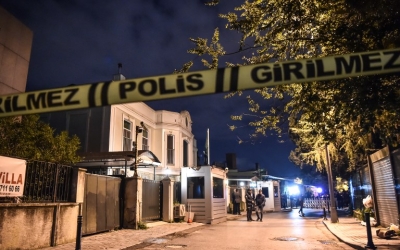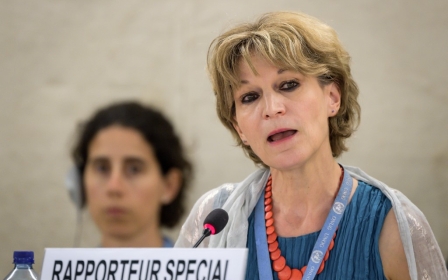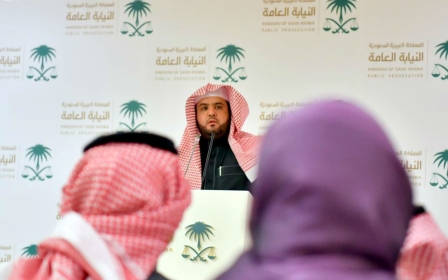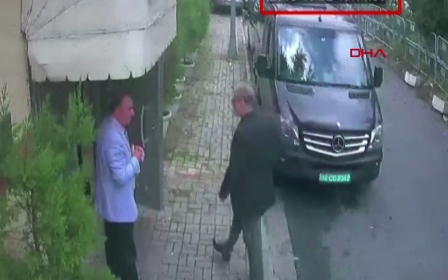Khashoggi murder: Saudi suspects put on trial in absentia in Turkey
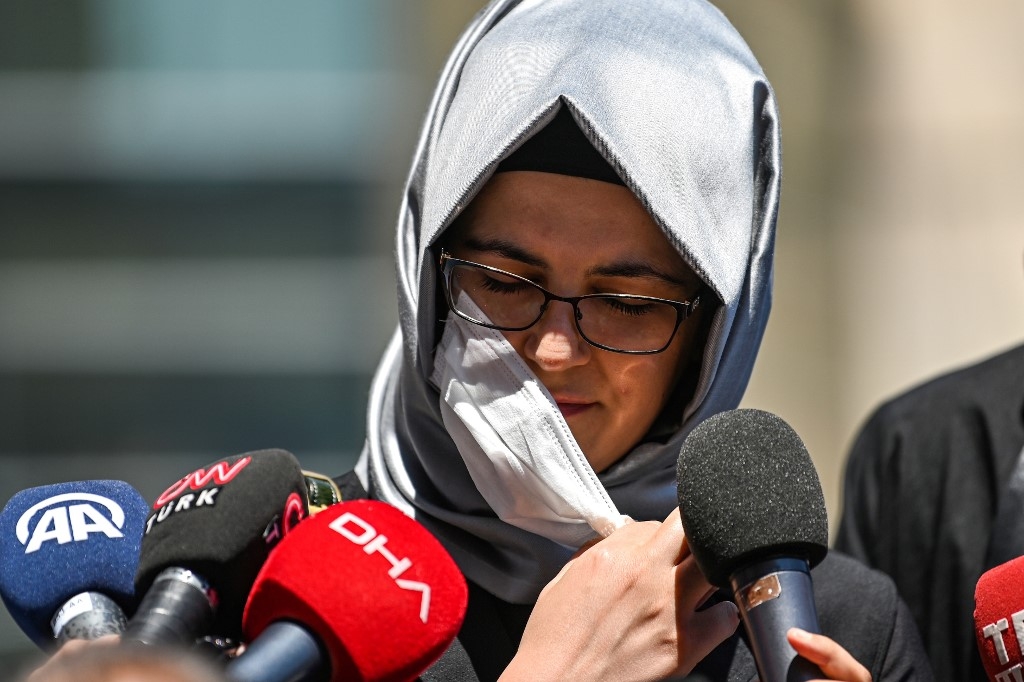
The trial in absentia of 20 Saudi suspects indicted over the gruesome murder of journalist Jamal Khashoggi in 2018, including two former aides to Saudi Crown Prince Mohammed Bin Salman, began in Istanbul on Friday.
The trial is likely to further anger Riyadh, which moved to ban Turkish state news agencies earlier this year after Istanbul's prosecutor filed the indictment.
Khashoggi, a Middle East Eye and Washington Post columnist, was killed inside the Saudi consulate in Istanbul on 2 October 2018 while obtaining documents needed for his wedding to his Turkish fiancee Hatice Cengiz.
Cengiz, who is attending the trial as plaintiff, declared earlier this week that she would not stop exploring all legal avenues in order to hold Khashoggi's killers accountable.
Agnes Callamard, the UN special rapporteur on extrajudicial, summary or arbitrary executions, was also present at the courtoom. Callamard's report on the murder linked the Saudi crown prince to the killing.
The court, after hearing from the witnesses working at the Saudi Consulate and Cengiz herself, decided to postpone the trial to 24 November, in order to grant more time to the defendants' lawyers to contact their clients.
The court said arrest warrants and Interpol red notices for the suspects were still valid. It declined a discovery request on the crime scene, but said one could be possible in the future.
In March, the Istanbul prosecutor filed an indictment that accused two close associates of bin Salman as perpetrators, describing the former deputy head of Saudi Arabia's general intelligence, Ahmed al-Asiri, and a former royal court adviser, Saud al-Qahtani, as having "instigated premeditated murder with monstrous intent".
Khashoggi, who criticised the crown prince's policies, was murdered inside Saudi Arabia's consulate in Istanbul. His remains have never been recovered.
The indictment was seen as evidence by Saudi officials that Ankara would not let the murder go and would seek to "use it" as leverage against Riyadh in the future.
However, Turkish officials, speaking on condition of anonymity to MEE earlier this year, said that everything was happening according to Turkish law.
'Everyone knows who is responsible'
"There is a murder, there is an indictment and there would be a trial," one official said. "Everyone already knows who is responsible. We don't need this for anything. That's it."
However, the trial itself is seen by some as a mostly symbolic step.
Zeynel Kangal, a professor on criminal law, said that the trial cannot continue without the presence of defendants.
“The law only grants exceptions to minor offences or in case of acquittals," said Kangal. “Of course they can hear from witnesses and talk about the evidence but nothing could come of this trial without questioning the actual defendants. There won’t be a verdict coming out of it.”
Among the suspects are Maher Abdulaziz Mutreb, a former diplomat and intelligence officer who has been repeatedly pictured with bin Salman; Salah Mohammed Tubaigy, the head of forensic evidence at the Saudi General Security Department; and Fahad al-Balawi, a member of the Saudi royal guard.
The trial is unlikely to bear fruit on the whereabouts of Khashoggi's remains, due to Saudi refusal to cooperate with the Turkish officials. Turkish President Recep Tayyip Erdogan has repeatedly called on Riyadh to send the suspects to Istanbul for a proper trial attended by the international observers. Instead, the Saudi government decided to conduct its own trial.
In December, a Saudi court sentenced five people to death and three others to jail over the journalist's murder. But a Saudi prosecutor said there was no evidence connecting Qahtani to the killing and the court dismissed charges against Asiri.
Mutreb, Tubaigy and Balawi had been among the 11 people on trial in Riyadh, during which sources said many of those accused of the murder defended themselves by saying they were carrying out Asiri's orders, describing him as the operation's "ringleader".
Khashoggi's son Salah said in a statement posted on Twitter in May that the family had forgiven the killers, opening a way for the suspects to get a pardon or commutation of sentence.
The UN probe, conducted by Callamard, revealed that Saudi government agents had discussed murdering and dismembering Khashoggi before his arrival at the building, referring to the journalist as "the sacrificial animal".
The Turkish indictment indicates that investigators focused on a well and an oven located at the Saudi consul-general’s residence in the search for the slain journalist's body, but were unable to resolve the mystery behind its disappearance.
The indictment also noted that the Saudi officials often provided contradicting information on the investigation and prevented Turkish investigators from conducting a search at the well.
Middle East Eye propose une couverture et une analyse indépendantes et incomparables du Moyen-Orient, de l’Afrique du Nord et d’autres régions du monde. Pour en savoir plus sur la reprise de ce contenu et les frais qui s’appliquent, veuillez remplir ce formulaire [en anglais]. Pour en savoir plus sur MEE, cliquez ici [en anglais].


